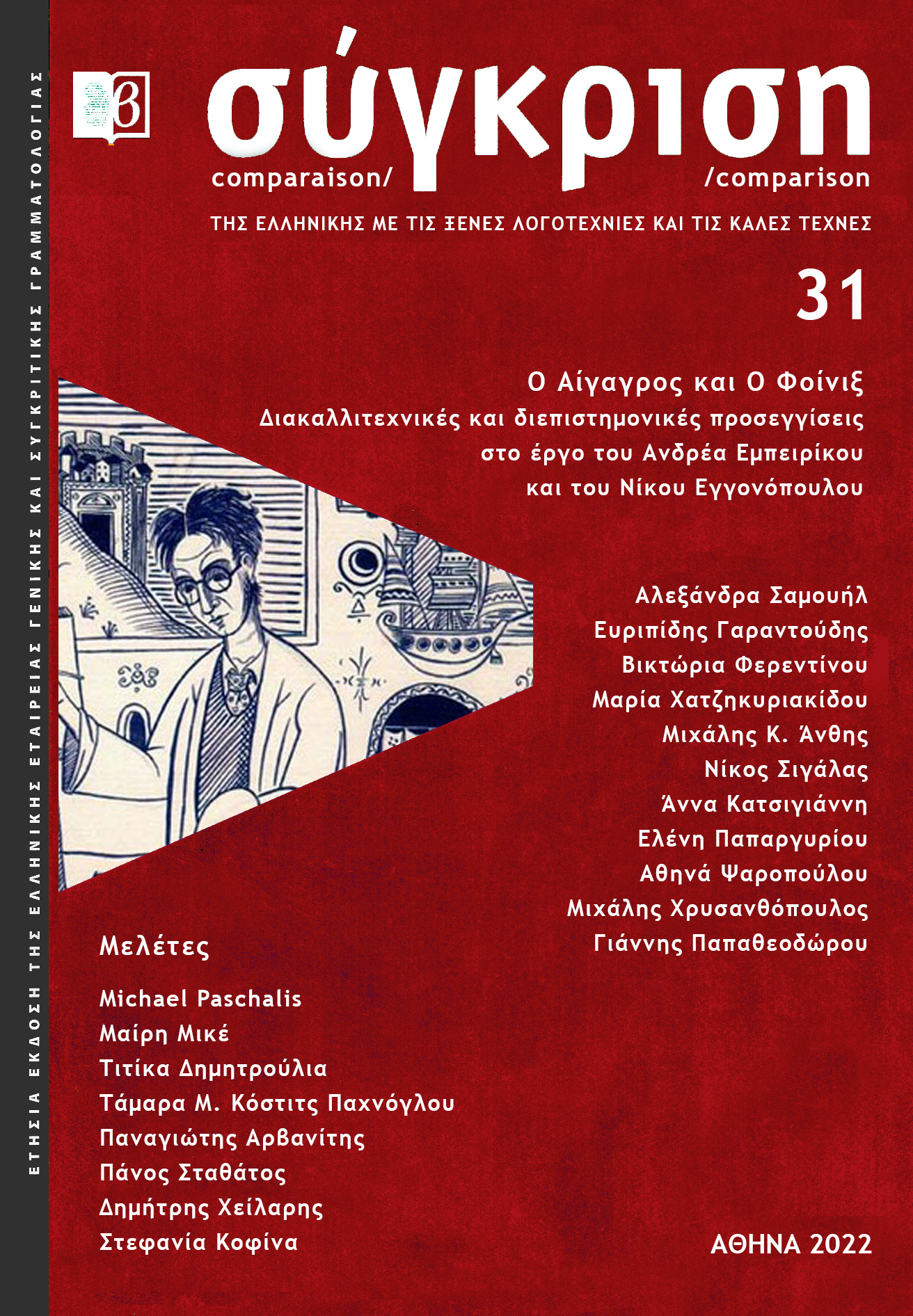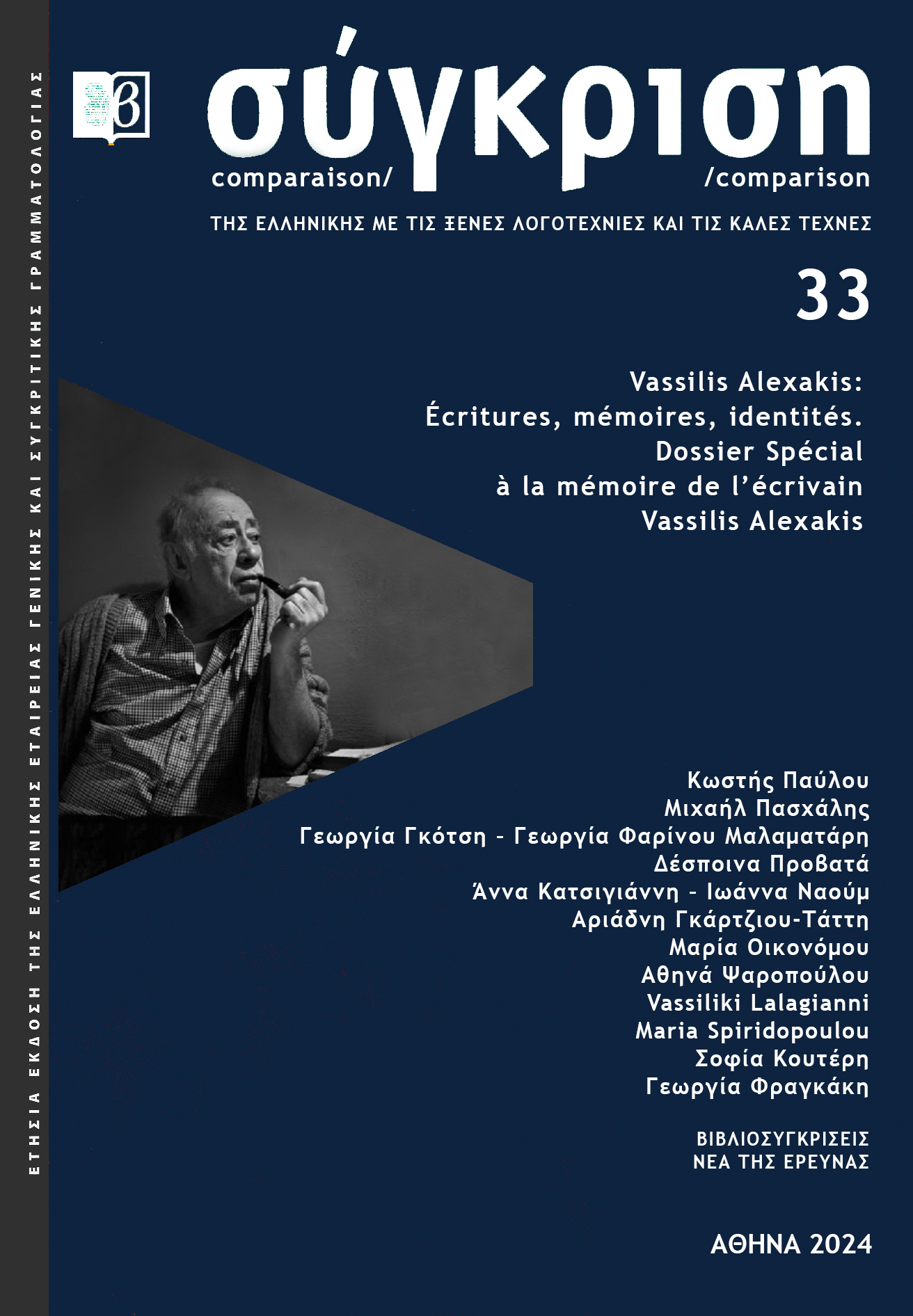ΕΥΡΙΠΙΔΗΣ ΓΑΡΑΝΤΟΥΔΗΣ, Το ποίημα «Όταν οι ευκάλυπτοι θροΐζουν στις αλλέες» ως λανθάνων άξονας της ποιητικής μυθολογίας του Εμπειρίκου
Abstract
The poem "When the eucalyptus trees rustle on the alleys" as a latent axis of the poetic mythology of Embiricos
The well-known prose poem by Andreas Embirikos, "When the eucalyptus trees rustle in the alleys" (written on 9 December 1964 and published in the collection Octana in 1980), entirely referring to K.G. Karyotakis, is examined as an emblematic landmark in the formation of Embirikos' personal poetic mythology. The main converging views of interpretation of the poem are summarized first, based on the main studies that refer to it. Then, the pragmatic terms of the poem are traced, in other words, the context of what and how, from a purely synchronic point of view, that of 1964, Embirikos knew about Karyotakis' life, his poetry and its critical reception is explored.
Article Details
- How to Cite
-
Γαραντούδης (Evripidis Garantoudis) Ε. (2022). ΕΥΡΙΠΙΔΗΣ ΓΑΡΑΝΤΟΥΔΗΣ, Το ποίημα «Όταν οι ευκάλυπτοι θροΐζουν στις αλλέες» ως λανθάνων άξονας της ποιητικής μυθολογίας του Εμπειρίκου. Comparison, 31, 18–27. https://doi.org/10.12681/comparison.31262
- Issue
- Vol. 31 (2022)
- Section
- Articles

This work is licensed under a Creative Commons Attribution-NonCommercial-ShareAlike 4.0 International License.
Authors who publish with this journal agree to the following terms:
- Authors retain copyright and grant the journal right of first publication with the work simultaneously licensed under a Creative Commons Attribution Non-Commercial License that allows others to share the work with an acknowledgement of the work's authorship and initial publication in this journal.
- Authors are able to enter into separate, additional contractual arrangements for the non-exclusive distribution of the journal's published version of the work (e.g. post it to an institutional repository or publish it in a book), with an acknowledgement of its initial publication in this journal.
- Authors are permitted and encouraged to post their work online (preferably in institutional repositories or on their website) prior to and during the submission process, as it can lead to productive exchanges, as well as earlier and greater citation of published work (See The Effect of Open Access).




